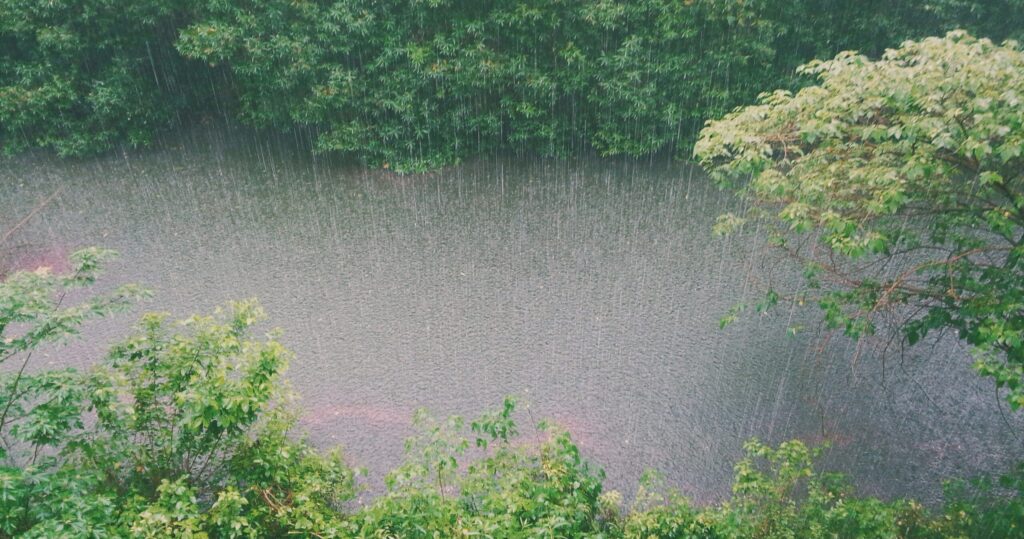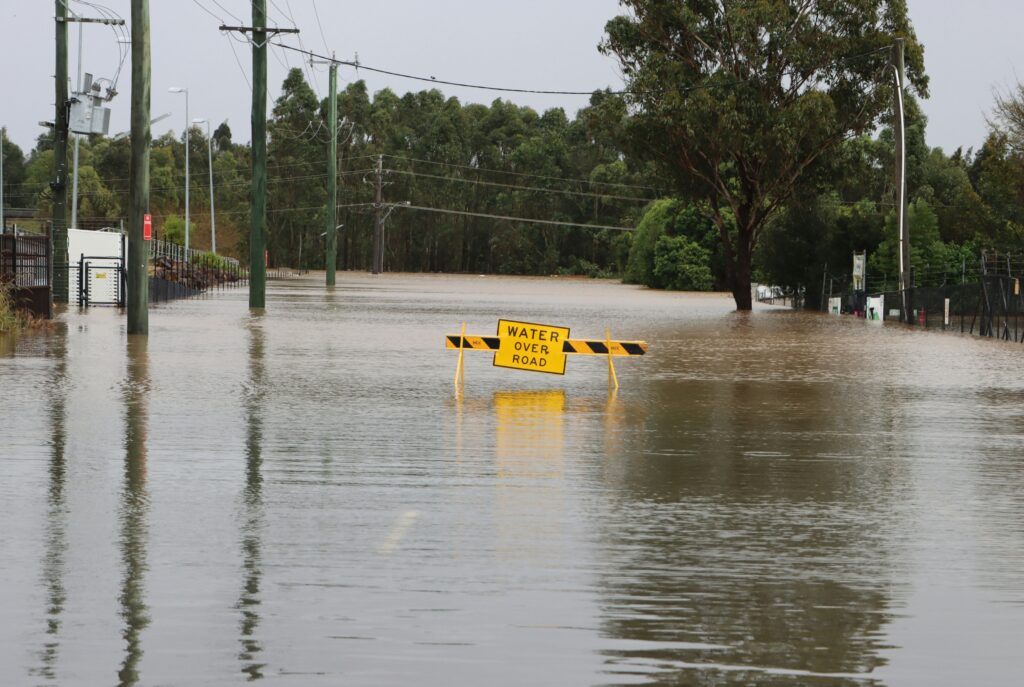INSURANCE CLAIMS AND CLIMATE CHANGE
TRANSCRIPT
Narrator
Whenever a bad storm or flood hits, it isn’t long before someone claims it was caused by climate change, and that it’s your fault.
John Robson
Now, think of all the times you’ve heard politicians, journalists and activists invoking the threat of floods and extreme weather to scare you into supporting expensive climate policies. The claim is extremely common. But what if it’s not true?
Narrator
In a recent report on climate change in Canada since 1948, Environment Canada scientists confirmed that while they think extreme precipitation might increase in the future,
the observational record has not yet shown evidence of consistent changes in short-duration precipitation extremes across the country.
And not long ago the Intergovernmental Panel on Climate Change had this to say:
In the United States and Canada during the 20th century and in the early 21st century, there is no compelling evidence for climate-driven changes in the magnitude or frequency of floods
John
There are countless of examples of people repeating the scary but unfounded slogans. And that’s why it’s time for some serious fact-checking.
Narrator
On May 15, 2018, the Globe and Mail published an article by Glen Hodgson, formerly a senior fellow with the Conference Board of Canada, in which he argued that rising costs for insurance companies from severe weather means we need to do more to curb greenhouse gas emissions. How does this claim stand up under scrutiny?
John
The first problem with Hodgson’s article is the idea that emission reductions will have a big effect on climate. As we noted in our Backgrounder video series on the Paris Accord, the alarmists own models say emission reductions on the scale envisioned under Kyoto or Paris won’t affect climate significantly and hence they won’t affect whatever impact climate change supposedly has on extreme weather going forward.
Taking our cars off the road and closing our factories would cripple us economically. But it won’t do a thing to stop future bad weather, it would just make it a lot harder to cope when disasters strike.
Narrator
The real question is whether rising insurance payouts for weather damages mean more bad weather has been happening.
John
Hodgson writes as though insurance payouts for weather-related damage, which are going up across Canada, and around the world, were proof of more bad weather. But in doing so he leaves out the vital, and frankly obvious, fact that because we are richer and more numerous there are now far more people and valuable, insured buildings in the path of whatever weather does come along. Even if the number of storms hasn’t gone up, the amount of damage has, because there’s a lot more stuff to get damaged.
Narrator
This is what the west side of Toronto looked like in 1959 where Rathburn Road crosses Highway 27.
Notice that it’s mostly farmers’ fields. If a bad storm went through here there would be few buildings for it to hit.
This is the same area in 1992. Notice all the new houses. The same storm would have done far more damage.
And today there are even more buildings, and more valuable buildings, in the area.
John
Clearly, you have to adjust the value of the damages for the increase in the number of people, the size of the economy, and the value of the buildings. Hodgson didn’t. If he had, it would have changed the picture dramatically.
Narrator
A few years ago a study in the peer-reviewed journal Natural Hazards Review concluded: “for North American storm losses, the literature overwhelmingly explains the increase in losses entirely by socioeconomic changes, and finds no credible evidence for human-caused climate change as a driver of increasing losses.”
And it’s not just North America. It also holds true at the global level. Roger Pielke Junior is an expert on climate and weather trends at Colorado State University. His research shows that global weather-related disaster losses as a share of the world economy have been trending down, not up, since 1990.
John
Did you know any of these things? For all the times you’ve been hit with alarmist slogans about extreme weather getting worse because of your carbon dioxide emissions, did anyone mention that the weather isn’t actually getting worse at all? Wondering what else you haven’t been told? I’m glad you asked.
Narrator
A few years ago the IPCC published a special report on managing the risks of extreme weather.
Here are some of their conclusions:
“Recent droughts are not unprecedented … The most severe droughts in the 20th century have occurred in the 1930s and 1950s, where the 1930s Dust Bowl was most intense and the 1950s drought most persistent.”
“There have been no significant trends observed in global tropical cyclone frequency records, including over the present 40-year period of satellite observations”
“[Overall hurricane intensity] has been declining globally since reaching a high point in 2005, and is presently at a 40-year low point”
And what about forest fires?
According to the National Forestry Database, the number of forest fires across Canada has actually been going down in recent decades.
And according to a 2018 study by experts at the University of Swansea in the UK,
global area burned appears to have overall declined over past decades, and there is increasing evidence that there is less fire in the global landscape today than centuries ago.
John
In short, we’re being barraged by loud, caustic rhetoric drawing dubious scientific links between man-made CO2 and extreme weather events that aren’t even happening. None of the usual slogans about floods and storms stand up to scrutiny. Increased insurance payouts in Canada and elsewhere are consistent with the increased population and size of the economy. There is no evidence that climate change is causing more frequent extreme storms, floods or forest fires, here or anywhere.
If you hear people saying otherwise, hang on to your wallet. And your common sense.
For the Climate Discussion Nexus, I’m John Robson.



If one look at the information on large urban insurer's websites, there is probably a section of the site that deals with climate change and provides alarming misleading information in order to convince those who deal with these matters to buy expensive insurance policies. Are these costs bankrupting cities?
This needs to be thoroughly examined. Who would do such a study?
Your previous video on flooding covered the neglect of duty to manage drainage issues as an example of preventive management in high density urban environments.
This topic is so important. Thank you.
Do you ask a psychiatrist if psychotherapy (@$100/hr) will help you?
Do you ask a property-casualty insurance company if increased flood payouts are matched by increased premiums collected?
It may well be that the true believers in co2 caused climate change will not listen to any cogent arguments against their idealism. We will learn in the next few years that climate is controlled by the sun, the magnetosphere, the earth's polarity & space weather.
There is a new South Pole forming just south of Brazil called the "South Atlantic Anomaly'. This has been causing fluctuations of the Jet Stream & the electrostatic charges (lightning) in the ionosphere. We will live to see the poles shift north to south. In my view, before long, research will be coming out to demonstrate that fact.
Only when we verify these actual drivers of climate will we be able to adapt correctly to the real problem. Human activity has a minimal affect.
The real problem is for us to figure out what to do with: garbage; food waste; plastic recycling; contaminated water from abandoned mines; raw sewage; invasive species in our waterways; etc.
Forty-five years an epidemiologist, I watch - and weep - to observe "the madding crowd" manipulated and berated by politicians bent on votes, journalists bent on circulations and the misinformed, however well-intentioned, bent on social media subscriptions. Throughout recent history have appeared those who would encourage the sober second thought ostensibly absent within trusted institutions in times of such current need. Alternative sources of enlightened perspective reside within the likes of "Memoirs of Extraordinary Popular Delusions and the Madness of Crowds", "The Skeptical Environmentalist" and, thankfully, Climate Discussion Nexus.